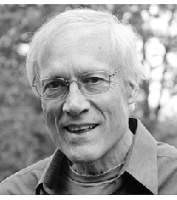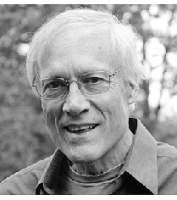I Timothy 2
|
1 Timothy 2:1-2:
First of all, then, I urge that supplications, prayers, intercessions, and thanksgivings be made for all people, for kings and all who are in high positions, that we may lead a peaceful and quiet life, godly and dignified in every way. |

“Intercession is speaking to God on behalf of another; another person, people group, situation, church, or community. Intercession is a sacrifice of our time and life’s focus.”
— April Stevenson You might have talked about prayer and intercession interchangeably, but there’s a difference. “The term prayer can be used for all forms of speaking with God,” says April, “ but to differentiate the term from intercession I would say that prayer is speaking with God about those things which concern ourselves. Intercession, on the other hand, is speaking to God on behalf of another; another person, people group, situation, church, or community. Intercession is a sacrifice of our time and life's focus. It is an example of how we can lay down our life for another. It is a form of loving another.” -Catch The Fire |
 Walter Wink Files
Walter Wink Files
History Belongs to the Intercessors by Walter Wink
Intercessory prayer is spiritual defiance of what is in the way of what God has promised. Intercession visualizes an alternative future to the one apparently fated by the momentum of current forces. Prayer infuses the air of a time yet to be into the suffocating atmosphere of the present. History belongs to the intercessors who believe the future into being. Even a small number of people, firmly committed to the new inevitability on which they have fixed their imaginations, can decisively affect the shape the future takes. These shapers of the future are the intercessors, who call out of the future the longed-for new present. In the New Testament, the name and texture and aura of that future is God's domination-free order, the reign of God. No doubt our intercessions sometimes change us as we open ourselves to new possibilities we had not guessed. No doubt our prayers to God reflect back upon us as a divine command to become the answer to our prayer. But if we are to take the biblical understanding seriously, intercession is more than that. It changes the world and it changes what is possible. It creates an island of relative freedom in a world gripped by unholy necessity. A new force appears that hitherto was only potential. The entire configuration changes as the result of the change of a single part. A space opens in the praying person, permitting God to act without violating human freedom. All of Jesus' teachings on prayer feature imperatives. (Ex. Lk 11:9 "Ask . . .search . . . knock.") In prayer we are ordering God to bring the Kingdom near. It will not do to implore. We have been commanded to command. We are required by God to haggle with God for the sake of the sick, the obsessed, the weak, and to conform our lives to our intercessions. This is a God who invents history in interaction with those "who hunger and thirst to see right prevail" (Mat. 5:6, REB). How different this is from the static god of Greek philosophy that all these years has lulled so many into adoration without intercession! When we pray we are not sending a letter to a celestial White House, where it is sorted among piles of others. We are engaged, rather, in an act of co-creation, in which one little sector of the universe rises up and becomes translucent, incandescent, a vibratory centre of power that radiates the power of the universe. History belongs to the intercessors, who believe the future into being. If this is so, then intercession, far from being an escape from action, is a means of focusing for action and of creating action. By means of our intercessions we veritably cast fire upon the earth and trumpet the future into being.
Intercessory prayer is spiritual defiance of what is in the way of what God has promised. Intercession visualizes an alternative future to the one apparently fated by the momentum of current forces. Prayer infuses the air of a time yet to be into the suffocating atmosphere of the present. History belongs to the intercessors who believe the future into being. Even a small number of people, firmly committed to the new inevitability on which they have fixed their imaginations, can decisively affect the shape the future takes. These shapers of the future are the intercessors, who call out of the future the longed-for new present. In the New Testament, the name and texture and aura of that future is God's domination-free order, the reign of God. No doubt our intercessions sometimes change us as we open ourselves to new possibilities we had not guessed. No doubt our prayers to God reflect back upon us as a divine command to become the answer to our prayer. But if we are to take the biblical understanding seriously, intercession is more than that. It changes the world and it changes what is possible. It creates an island of relative freedom in a world gripped by unholy necessity. A new force appears that hitherto was only potential. The entire configuration changes as the result of the change of a single part. A space opens in the praying person, permitting God to act without violating human freedom. All of Jesus' teachings on prayer feature imperatives. (Ex. Lk 11:9 "Ask . . .search . . . knock.") In prayer we are ordering God to bring the Kingdom near. It will not do to implore. We have been commanded to command. We are required by God to haggle with God for the sake of the sick, the obsessed, the weak, and to conform our lives to our intercessions. This is a God who invents history in interaction with those "who hunger and thirst to see right prevail" (Mat. 5:6, REB). How different this is from the static god of Greek philosophy that all these years has lulled so many into adoration without intercession! When we pray we are not sending a letter to a celestial White House, where it is sorted among piles of others. We are engaged, rather, in an act of co-creation, in which one little sector of the universe rises up and becomes translucent, incandescent, a vibratory centre of power that radiates the power of the universe. History belongs to the intercessors, who believe the future into being. If this is so, then intercession, far from being an escape from action, is a means of focusing for action and of creating action. By means of our intercessions we veritably cast fire upon the earth and trumpet the future into being.
 Walter Wink Files
Walter Wink Files
The myth of redemptive violence thus uses the traditions, rites, customs, and symbols of Christianity in order to enhance the power of a wealthy elite and the goals of the nation narrowly defined. It has no interest in compassion for the poor, or for more equitable economic arrangements, or for the love of enemies. It merely uses the shell of religion — a shell that can be filled with the blasphemous doctrine of the national security state. Emptied of their prophetic vitality, these outer forms are then manipulated to legitimate a power system intent on the preservation of privilege at all costs.
Why then do large masses of the non privileged submit to such a myth? Why, for example, do blue-collar workers, who are among the most victimized by the ruling elite, continue not only to support their oppressors but to be among their most vociferous fans? The answer is quite simple: the promise of salvation.
The myth of redemptive violence is nationalism become absolute. This myth speaks for God; it does not listen for God to speak. It invokes the sovereignty of God as its own; it does not entertain the prophetic possibility of radical denunciation and negation by God. It misappropriates the language, symbols, and scriptures of Christianity. It does not seek God in order to change; it claims God in order to prevent change. Its God is not the impartial ruler of all nations but a biased and partial tribal god worshiped as an idol. Its metaphor is not the journey but a fortress. Its symbol is not the cross but a rod of iron. It’s offer is not forgiveness but victory. Its good news is not the unconditional love of enemies but their final liquidation. Its salvation is not a new heart but a successful foreign policy. It usurps the revelation of God’s purposes for humanity in Jesus. It is blasphemous. It is idolatrous.
--Walter Wink, writing in 1992 in Engaging the Powers
Why then do large masses of the non privileged submit to such a myth? Why, for example, do blue-collar workers, who are among the most victimized by the ruling elite, continue not only to support their oppressors but to be among their most vociferous fans? The answer is quite simple: the promise of salvation.
The myth of redemptive violence is nationalism become absolute. This myth speaks for God; it does not listen for God to speak. It invokes the sovereignty of God as its own; it does not entertain the prophetic possibility of radical denunciation and negation by God. It misappropriates the language, symbols, and scriptures of Christianity. It does not seek God in order to change; it claims God in order to prevent change. Its God is not the impartial ruler of all nations but a biased and partial tribal god worshiped as an idol. Its metaphor is not the journey but a fortress. Its symbol is not the cross but a rod of iron. It’s offer is not forgiveness but victory. Its good news is not the unconditional love of enemies but their final liquidation. Its salvation is not a new heart but a successful foreign policy. It usurps the revelation of God’s purposes for humanity in Jesus. It is blasphemous. It is idolatrous.
--Walter Wink, writing in 1992 in Engaging the Powers
 Derek Prince
Derek Prince
You can kill Nazis, but you cannot kill Nazism. You can kill enemy soldiers, but you do not deal with the spiritual forces behind them. But the weapons which God has given us are mighty! They are invincible, if we will use them. If we are defeated, it is not through a lack of armor. It is through the failure to use it.
In 1 Timothy 2, the apostle Paul says: “I exhort first of all that supplications, prayers, intercessions, and giving of thanks, be made for all men; for kings and all who are in authority, that we may lead a quiet and peaceable life in all godliness and reverence. For this is good and acceptable in the sight of God our Saviour; who desires all men to be saved and to come to the knowledge of the truth.”
Paul says, if you bypass prayer, you can have all sorts of plans, systems and programs, but you do not have the power to operate them. It is like having a building wired for electricity, but not connected to the generator. Nothing is going to work.
--Derek Prince
In 1 Timothy 2, the apostle Paul says: “I exhort first of all that supplications, prayers, intercessions, and giving of thanks, be made for all men; for kings and all who are in authority, that we may lead a quiet and peaceable life in all godliness and reverence. For this is good and acceptable in the sight of God our Saviour; who desires all men to be saved and to come to the knowledge of the truth.”
Paul says, if you bypass prayer, you can have all sorts of plans, systems and programs, but you do not have the power to operate them. It is like having a building wired for electricity, but not connected to the generator. Nothing is going to work.
--Derek Prince
|
I Timothy 2:5:
"For there is one God, and there is one mediator between God and men, the man Christ Jesus" |
Your pastor, your church, etc are NOT the "one" mediator.
|
|
I Timothy 2:8-10:
I will therefore that men pray every where, lifting up holy hands, without wrath and doubting. In like manner also, that women adorn themselves in modest apparel, with shamefacedness and sobriety; not with braided hair, or gold, or pearls, or costly array; But (which becometh women professing godliness) with good works. |
The lifting up of hands is an ancient sign of prayers being offered to heaven. It represents our lifting up our prayers to a God that dwells on high, who is not earthly. Holy hands denotes holy hearts, minds, conscience ready for worship and prayer. Isaiah had told the Hebrews that God would not hear their prayer because their hands were bloody and not pure. (Is 1:15).
|

In 1 Timothy 2:9-13, Paul tells us that women should be modestly dressed. He uses the example of the then present-day adornment as an example of what not to do. This is a culturally-based assessment by Paul. Notice that Paul emphasizes good works and godliness as a qualifier (as does Peter, see 1 Pet. 3:2). This is not a doctrinal statement tied to anything other than being a godly woman in appearance as well as attitude.
In verse 11, Paul says that a woman should quietly receive instruction. Please note that “The word, hesuchia, translated “quietness” in 1 Timothy 2:11 and silent in verse 12, does not mean complete silence with no talking. It is clearly used elsewhere (Acts 22:2; 2 Thes. 3:12) to mean “settled down, undisturbed, not unruly.” A different word (sigao) means “to be silent, to say nothing” (cf. Luke 18:39; 1 Cor. 14:34).”5 It is not used here. So, Paul is advocating orderliness in this verse, not absolute silence.
In verse 11, Paul says that a woman should quietly receive instruction. Please note that “The word, hesuchia, translated “quietness” in 1 Timothy 2:11 and silent in verse 12, does not mean complete silence with no talking. It is clearly used elsewhere (Acts 22:2; 2 Thes. 3:12) to mean “settled down, undisturbed, not unruly.” A different word (sigao) means “to be silent, to say nothing” (cf. Luke 18:39; 1 Cor. 14:34).”5 It is not used here. So, Paul is advocating orderliness in this verse, not absolute silence.
| The first characteristic is that men should "lift up holy hands." That was the usual posture of prayer, derived largely from the Jewish synagogues, where the Jews prayed while standing with their arms lifted up, and led the congregation that way. All Paul is saying is that when men pray that way there ought to be two things that are characteristic of them:
One, the hands lifted up should be holy hands. That does not mean that something religious has to be done to them -- that they should be sprinkled with holy water or something like that. Rather, this is a figure of speech which means that these men's actions, symbolized by the hands, should be right actions. These are men who ought to have a record of rightful behavior, who are recognized as honest, whose actions reflect their faith. Second, their attitudes toward one another must be "without anger or quarreling." Their relationships have to be right. They must not be bitter or resentful against somebody, angry about something that has never been brought out or discussed. Those are the ones who are to lead in prayer. |
|
I Timothy 2:12 I do not permit a woman to teach or to assume authority over a man; she must be quiet.
|

The Bible teaches that while both men and women are equally created in the image of God and are both gifted for ministry, God has designed men and women for distinct and complementary callings within the church and the home. In the home, God calls husbands to be the head and for wives to graciously submit themselves to the servant leadership of their husbands (Eph. 5:22-24). In the church, God intends for qualified men to lead and to fill the teaching office of the church—the office of pastor.
That is why there is such a stark prohibition in 1 Timothy 2:12: “I do not permit a woman to teach or to exercise authority over a man.” Again, this prohibition is not arbitrary but based on the order of creation (1 Tim. 2:13); cf. 1 Cor. 11:8-9), and it prohibits women from the two main functions required for the office of pastor—teaching and authority. -Denny Burk |
Many times, Christians divide over doctrines and non-essential teachings instead of being united, so how can we disagree without being disagreeable? Christians have disagreements over the rapture, baptism, tribulation, speaking in tongues, and such, but they shouldn’t be divided and disagreeable to one another. We are to love one another in word and deed (1 John 3:18), not brow beat others into believing what we believe. You can win the argument but you might lose your friends. Sadly, in some cases, it turns ugly and like a war, there are ongoing, escalating exchanges that only lead to the ruin of the participants. The Apostle Paul instructed the young pastor Timothy to “Remind them of these things, and charge them before God not to quarrel about words, which does no good, but only ruins the hearers” (2 Tim 2:14), so it is best to “Have nothing to do with foolish, ignorant controversies; you know that they breed quarrels” (2 Tim 2:23).
Read more: https://www.whatchristianswanttoknow.com/how-to-disagree-without-being-disagreeable/#ixzz7LIQmE0RN
Read more: https://www.whatchristianswanttoknow.com/how-to-disagree-without-being-disagreeable/#ixzz7LIQmE0RN





